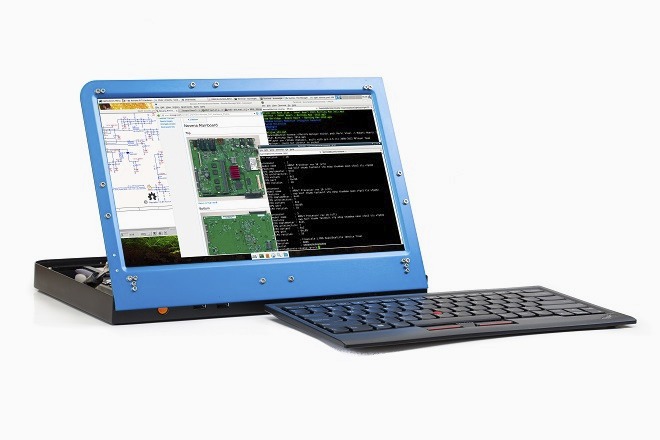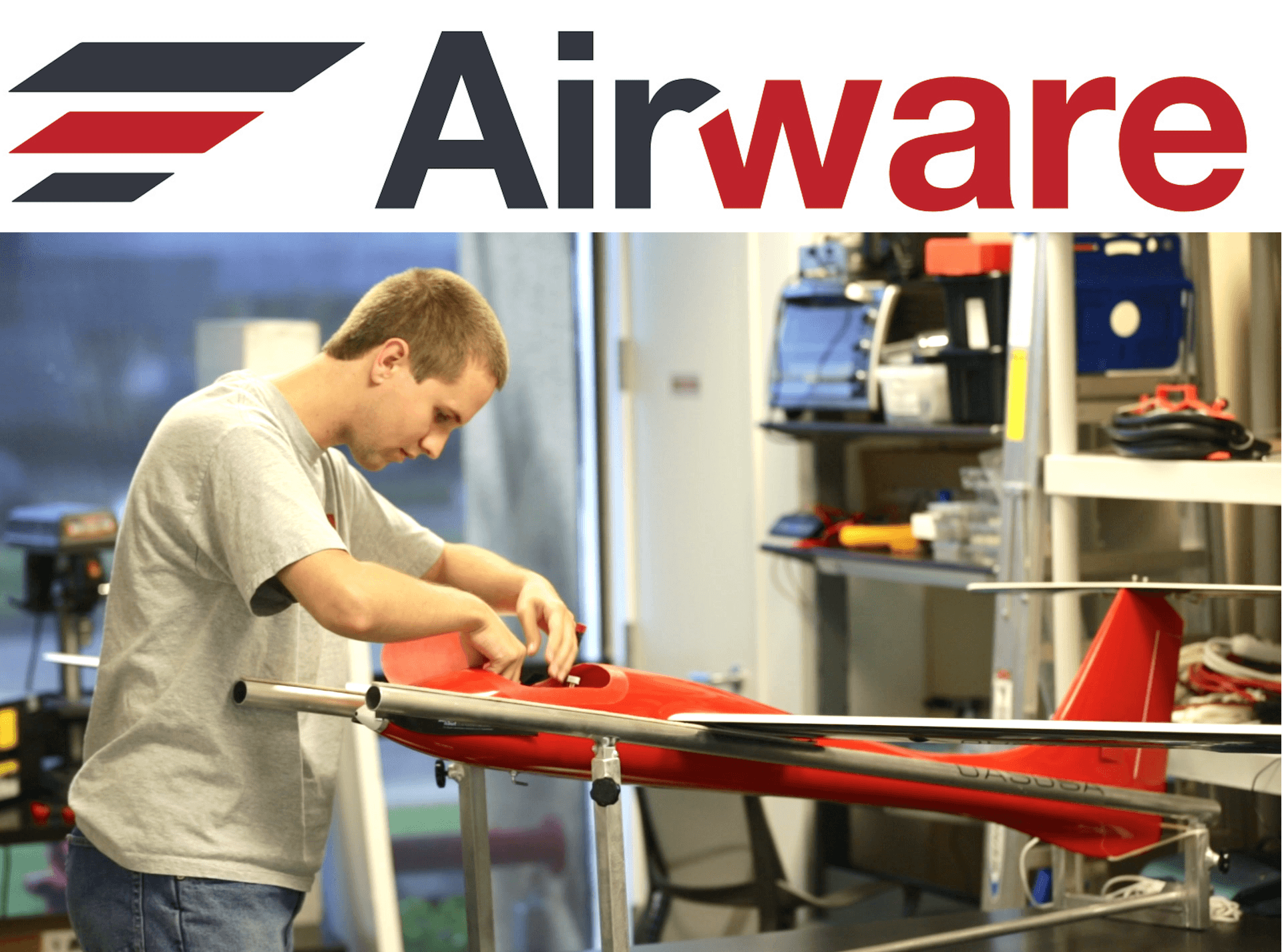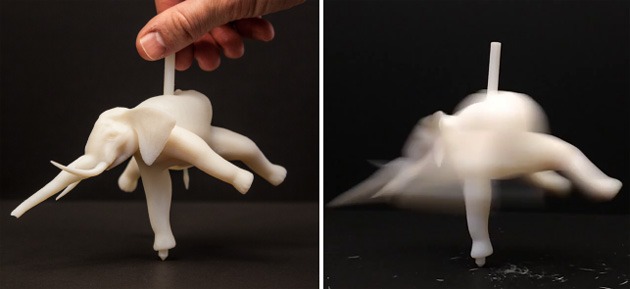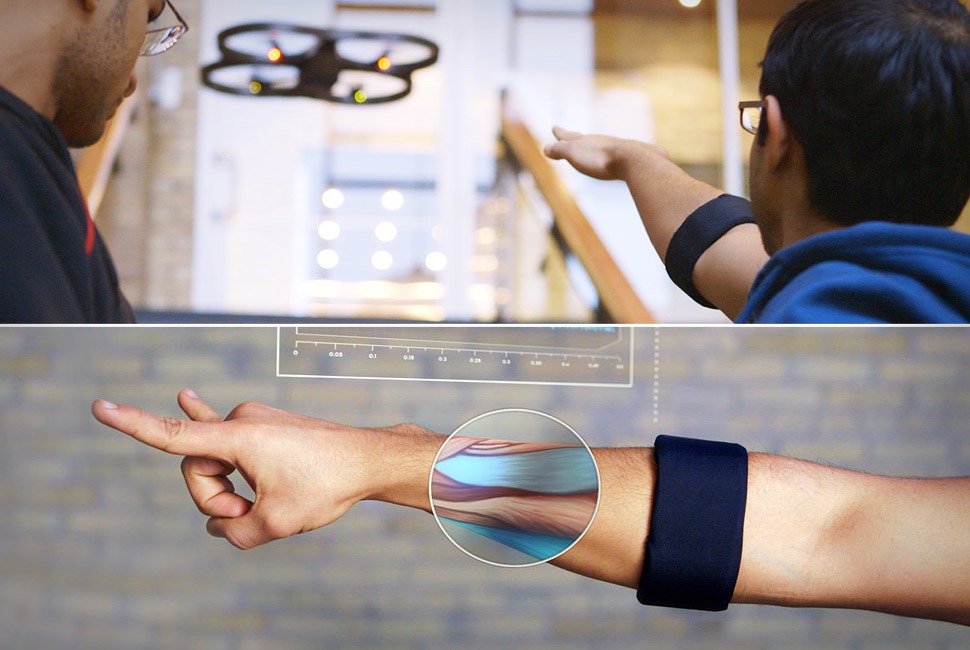The original idea was simply to encourage others to build their own open source laptops at home. But now the pair are taking the project a step further. Starting today, you can order your own pre-built Novena laptop through the crowd-funding site Crowd Supply, and it will ship out in the coming months. Much like Kickstarter, Crowd Supply is place where you can put up money to help fund a company and then get a product in exchange.
The project is part of larger movement towards open source hardware. Open source software has become a mainstay across the web and inside many businesses, and now, open source hardware is beginning to find its own place in the world, not only among hobbyists but inside big companies such as Facebook. The idea is not only to improve security, but to help spur innovation. If you share designs, others can make them better. The new, commercial version of the Novena does include some parts that are closed source, such as the processor, but Huang and Cross have tried to minimize these as much as possible.
The machine is available with two different cases: one made of aluminum, and one “heirloom” wood bezel hand-crafted by Portland, Oregon-based designer Kurt Mottweiler. Both are designed so that you can readily expand the hardware that’s inside. “Half of it is empty,” Huang says of the machine. “It’s designed with the thought that you would add to it yourself.” You can modify the system without any special bending tools, and it will also ship with extra bezels in case you break one, so that you can feel safe modifying it.
You can purchase a version of the machine, including the aluminum case, high-definition display, and motherboard for $1,195. For $1,995, you also get a battery and a 240 gigabyte solid-state hard drive. And the heirloom version sells for a whopping $5,000. “The heirloom version is for people who are ready to invest in something they would use for years and years,” Huang says. You can also buy just the motherboard for $500 and use it with your own case.
The aluminum version of the machine is unusual in that the display sits on the outside of the case. When you lift the case lid, you see not a keyboard but the insides of the machine. That makes it easy to add new components. You then attach your own external keyboard, as you would with an iPad or some other tablet PC. That might make it hard to actually use the laptop on your lap, but Huang says this is actually what most users he’s talked to prefer. That said, the heirloom version includes a removable keyboard.
All versions of the Novena run the open source Linux operating systems, and they’re powered by an ARM processor, the same sort of chip you’d expect to find in a smartphone. Yes, these machines are a bit underpowered by today’s standards, and they’re even more expensive than a premium laptop like an Apple Macbook Pro. But the point is that they’re different. “It’s not for everyone,” Huang says. “But it’s open source, for people who care about the security, privacy and the ability to explore the source and make sure the design hasn’t been tampered with.”
This is certainly a small-time operation, aimed mostly at hobbyists. But the project appears to have solid backing from Crowd Supply. Unlike competitors such as Kickstarter and IndieGoGo, Crowd Supply specializes in helping companies that want to manufacture physical products, and it plays an active role in helping those businesses figure out how to actually produce those items. It also helps with shipping orders and logistics. “One thing we fear the most is non-delivery,” says Crowd Supply co-founder Josh Lifton. “That’s where people put money into the thing, the company becomes successful, and the original backers never get their product.” To prevent such scenarios, Crowd Supply vets the teams and proposals to make sure the promised items can actually be delivered without going over budget.
Lifton also emphasizes that if you purchase one of these laptops, you shouldn’t think of yourself as an investor in company. You’re simply getting a laptop at a lower price than others will in the future. “It’s certianly true that the original backers are putting more skin in the game,” he says. “But the reward there is that they’re getting it for a much cheaper price, the price will be higher after the campaign.”
Huang agrees that backers shouldn’t think of themselves as founders. But he still says the earlier backers are important. “There’s no way a VC would back this idea,” he says. “If you don’t contribute, it’s not going to happen.”



